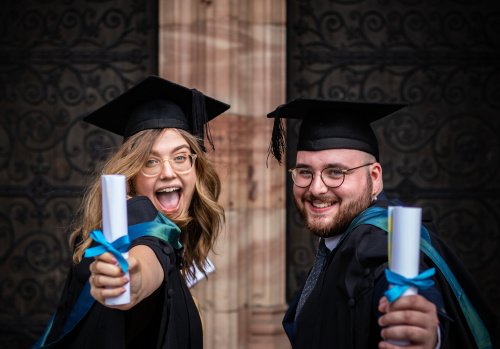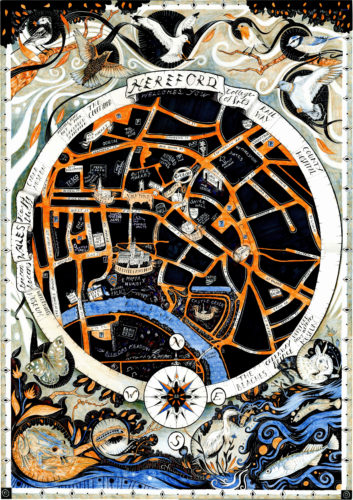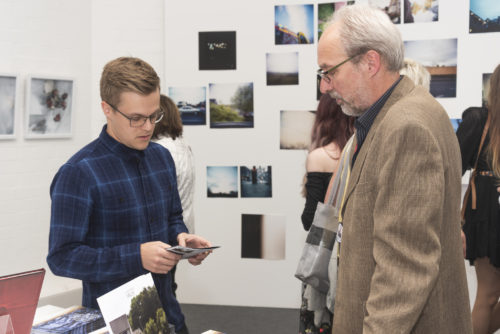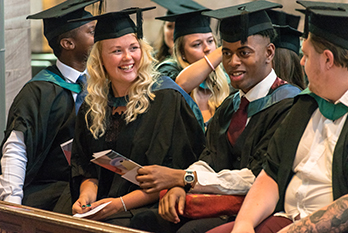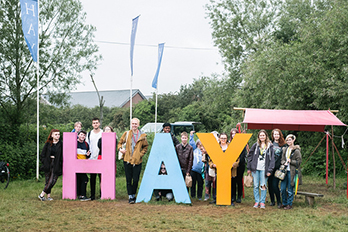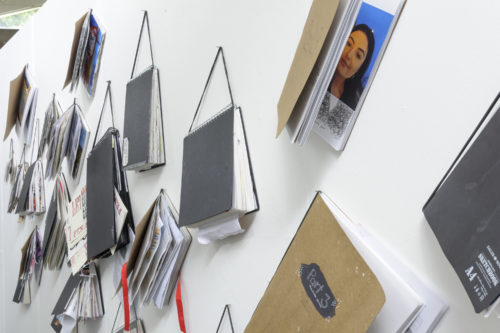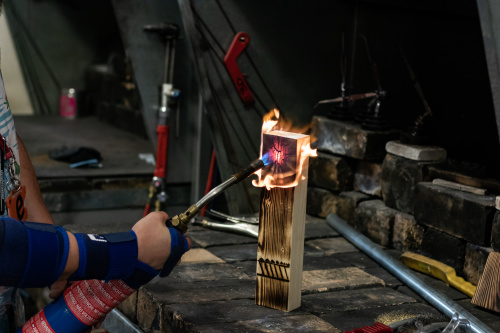Learning Gain with Ravensbourne
Published on 13.02.17
3 ½ minute read We were delighted to welcome delegates from Ravensbourne college to Hereford College of Arts on the 31st January. The visit was to share some very recent research on Learning Gain with us and discuss some of the findings. Ravensbourne are a lead college in this HEFCE-funded project and, like us, a
Categories
3 ½ minute read
We were delighted to welcome delegates from Ravensbourne college to Hereford College of Arts on the 31st January. The visit was to share some very recent research on Learning Gain with us and discuss some of the findings. Ravensbourne are a lead college in this HEFCE-funded project and, like us, a specialist arts college so their work is particularly relevant to HCA.
Considering ideas of ‘learning gain’ is especially relevant for the context of the TEF, which draws on DHLE data as the primary way of capturing graduate outcomes. The TEF assessment criteria looks at how many students have gained ‘highly skilled employment’ outcomes and how many are in ‘further study’ programmes. However, the DHLE data is captured six months after graduation and there are various debates as to how far this is a fair assessment, particularly for students working in the creative arts who may, for example, work as ‘interns’ or be juggling a start-up whilst working in a more prosaic context. Much depends on whether graduates classify this kind of activity as being in ‘highly skilled employment’.
Therefore, any information that looks to consider the ‘distance travelled’ of our student intake is extremely useful. I can’t reveal too much about the research itself as it is pending publication, but the work certainly provided a range of interesting ideas and perspectives. The work considered both how work experience supports the embedding of employability skills within the curriculum, how we might capture ‘learning gain’ and the impact of work experience in supporting students future career prospects.
Janthia, Nick and Allison presented to a mixed audience of HCA students, lecturing staff, HE Managers and Senior Managers from our college and our project partners, Gloucestershire College. We were invited by Janthia to ask questions during the presentation, which was followed by a lively discussion over a very lovely lunch (thank-you Holland for the amazing and inclusive food). Ideas and conversation ranged from considerations about how data might be captured through student self-assessments, to use of digital media in ‘uploading’ snapshots of learning gain, students self-identifying and curating their moments of learning gain in conversation with tutors, and whether ‘high-level employment’ was necessarily a true indicator of ‘value’.
This view was echoed in an email from Kim Colebrook, a mature student who already has a well-established career. It is easy to overlook how diverse our learner population is, and important to remember that each individual will have a different motivation for enrolling and investing in an arts course. This will not necessarily revolve around the wi sh to enter ‘high level employment’. Kim feels that HCA needs to have a creative response to the ‘learning gain’ questions raised during the presentation and I agree.
sh to enter ‘high level employment’. Kim feels that HCA needs to have a creative response to the ‘learning gain’ questions raised during the presentation and I agree.
It was lovely to knowledge-exchange with Janthia, Nick and Allison. They were wonderful guests and excellent presenters whose warmth and openness to critical discussion generated amazing ideas. I am looking forward very much to visiting Ravensbourne with Abigail, our Principal, in the near future and hope we can find further opportunities to collaborate and knowledge-share.
In the meantime, I’m hoping we can start some pop-up discussions around student motivations and the value of work experience around college. First, we’ve a creative space event when we’ll listen to recordings of Grayson Perry’s ‘Reith Lectures’ and two drop-in academic writing workshops that I’m co-presenting with Fenella so we can continue the research and teaching projects around her academic reading strategy.
